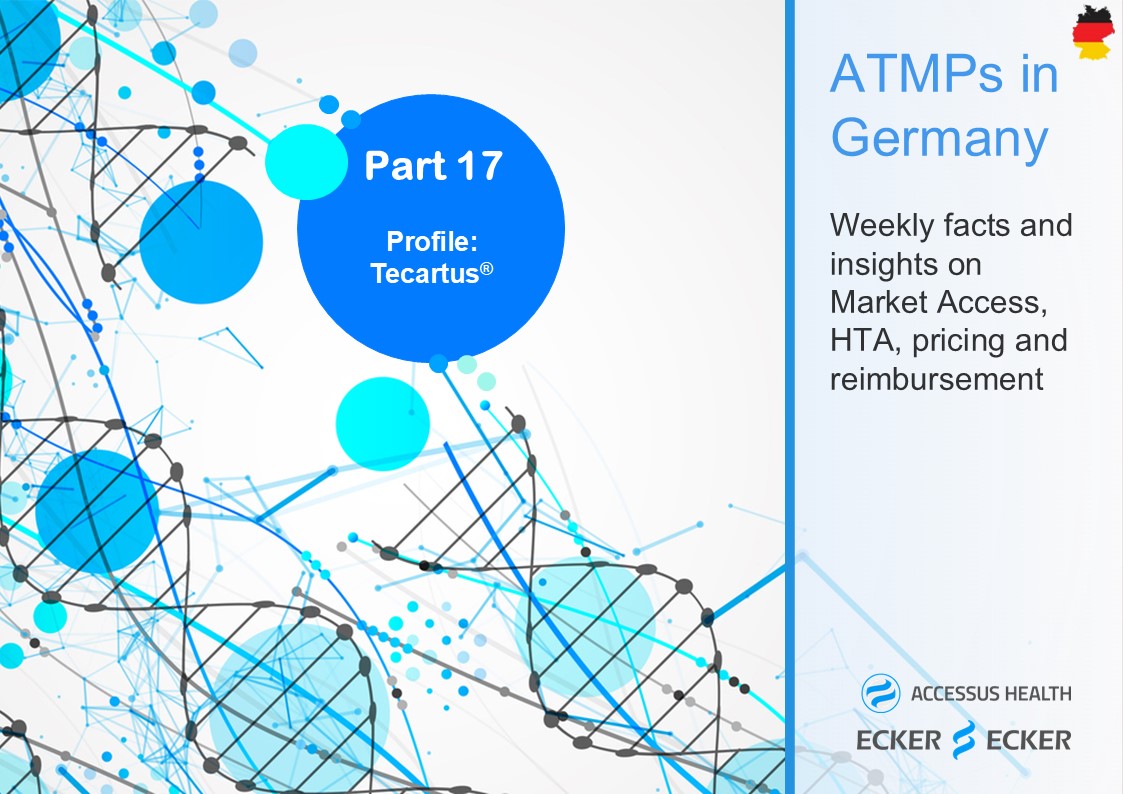ATMPs in Germany - Tecartus®

👉 German HTA body stopped routine practice data collection, as the number of available patients for treatment with Tecartus is too low to generate meaningful results.
Tecartus (active substance: brexucabtagene autoleucel) is a CAR-T cell therapy and was initially approved in October 2020 for the treatment of patients with mantle cell lymphoma (MCL). Tecartus is also approved for the treatment of patients with B-cell precursor acute lymphoblastic leukemia (ALL). The pivotal studies ZUMA-2 (MCL) and ZUMA-3 (ALL) were single-arm studies. Tecartus is available in Germany.
🏆German HTA rating:
To date Tecartus was assessed in 2 German HTAs. German HTA ratings from August 2021 (MCL) and March 2023 (ALL) resulted both in a hint for a non-quantifiable additional benefit. As no direct comparative evidence was available, the additional benefit was granted only because of the orphan drug status.
As observed previously, the additionally submitted indirect comparisons were not sufficient for German HTA. In case of Tecartus, uncertainties of the indirect comparisons arise from confounders, the synthetic control arm and the propensity score matching.
💵 Launch price: € 360,000. Tecartus is used as a one-time treatment. Reimbursement price: € 271,000 (two price reductions). Cumulated rebate: 25 %
📘 Special features of reimbursement:
Tecartus is reimbursed. Like other CAR-T cell therapies, Tecartus is reimbursed via NUB fees. In addition, hospitals need to fulfil all requirements of the ATMP Quality Assurance Guideline to use Tecartus.
In the indication MCL, Tecartus is subject to routine practice data collection. This obligation restricts the prescription of Tecartus to physicians, who participate in the required data collection. ➡️ The indication ALL is not subject to routine practice data collection as the number of patients in Germany is < 100 and therefore meaningful results for reassessment are not expected by the German HTA body.
💡 The routine practice data collection for Tecartus (in ALL) is the first that has ever been stopped. The main reason is the low patient number. Therefore, patient numbers in Germany should be estimated early for a concerned ATMP to predict the possibility for an obligation of routine practice data collection.